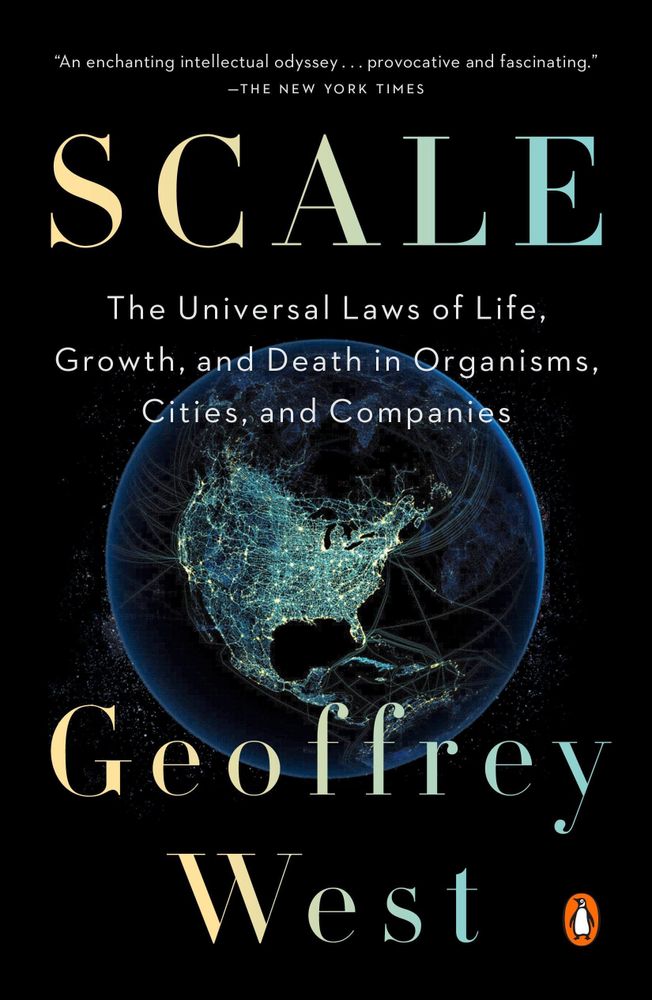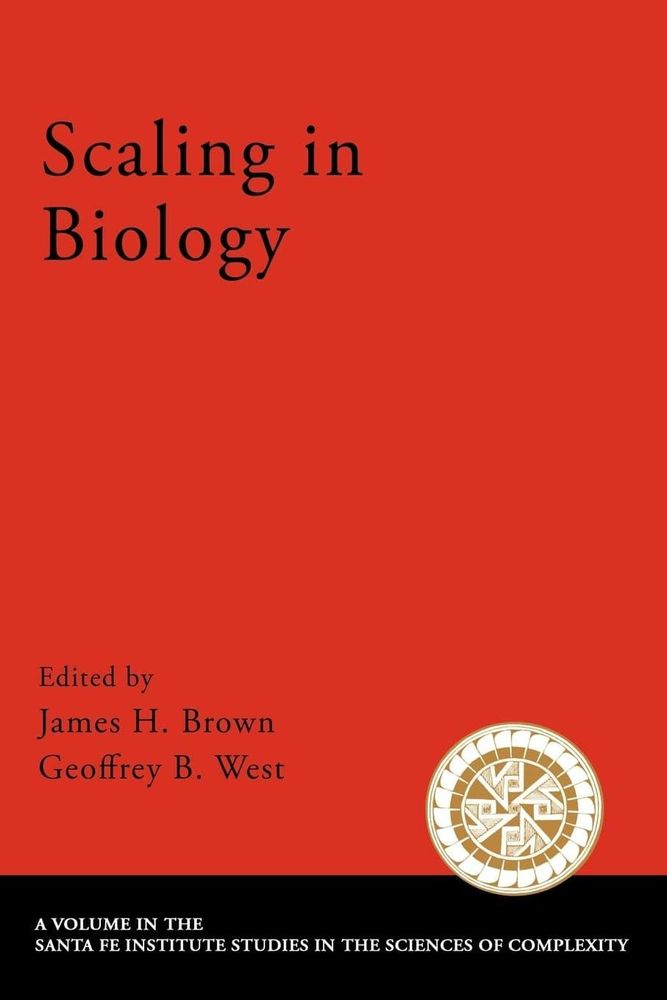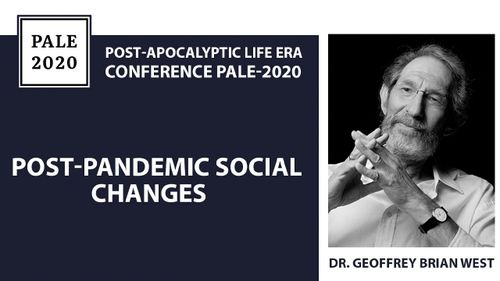
Geoffrey Brian West
Theoretical physicist, former president and distinguished professor of the Santa Fe Institute. He is the author of several books among which is Scale: The Universal Laws of Growth, Innovation, Sustainability, and the Pace of Life in Organisms, Cities, Economies, and Companies. He is a visiting Professor of Mathematics at Imperial College, London, and an associate fellow of the Said Business School at Oxford University.
Geoffrey West is one of the leading scientists working on a scientific model of cities. His primary interests have been in fundamental questions in physics, especially those concerning the elementary particles, their interactions and cosmological implications.
West received his BA from Cambridge University in 1961 and his doctorate from Stanford University in 1966, where he returned in 1970 to become a member of the faculty. West served as Santa Fe Institute President from July 2005 through July 2009. Prior to joining the Santa Fe Institute as a Distinguished Professor in 2003, he was the leader, and founder, of the high energy physics group at Los Alamos National Laboratory, where he is one of only approximately ten Senior Fellows.
His long-term fascination in general scaling phenomena evolved into a highly productive collaboration on the origin of universal scaling laws that pervade biology from the molecular genomic scale up through mitochondria and cells to whole organisms and ecosystems. This led to the development of realistic quantitative models for the structural and functional design of organisms based on underlying universal principles. This work, begun at the Institute, has received much attention in both the scientific and popular press, and provides a framework for quantitative understanding of problems ranging from fundamental issues in biology (such as cell size, growth, metabolic rate, DNA nucleotide substitution rates, and the structure and dynamics of ecosystems) to questions at the forefront of medical research (such as aging, sleep, and cancer). Among his current interests is the extension of these ideas to understand quantitatively the structure and dynamics of social organizations, such as cities and corporations, including the relationships between economies of scale, growth, innovation and wealth creation and their implications for long-term survivability and sustainability.
He is a Fellow of the American Physical Society and was one of their Centenary Speakers in 2003. He has been a lecturer in many popular and distinguished scientist series worldwide, as well as at the World Economic Forum. Among recent honors he was a co-receiver of the Mercer Award from the Ecological Society of America, the Weldon Memorial Prize (2005), Oxford University and the Glenn Award for research on Aging and the APS Szilard Award (2013). In 2006 he was named one of Time magazine's "100 Most Influential People in the World" and his work was selected as one of the breakthrough ideas of 2007 by the Harvard Business Review. He is the author of several books, a visiting Professor of Mathematics at Imperial College, London, and an associate fellow of the Said Business School at Oxford University. He is a member of the World Knowledge Dialogue Scientific Board.
Contacts:
Wikipedia
Website
Research Projects
Email: gbw[at]santafe(dot)edu
Phone: 505-984-8800
Fax: 505-982-0565
 | Scale: The Universal Laws of Life, Growth, and Death in Organisms, Cities, and Companies Scale is a thrilling scientific adventure story about the elemental natural laws that bind us together in simple but profound ways. Through the brilliant mind of Geoffrey West, we can envision how cities, companies and biological life alike are dancing to the same simple, powerful tune. |
 | Scaling in biology. Brown, James H., and Geoffrey B. West, eds. While there have been many excellent empirical and theoretical investigations, there has been little attempt to synthesize this diverse but interrelated area of biology. In an effort to fill this void, Scaling in Biology, the first general treatment of scaling in biology in over 15 years, covers a broad spectrum of the most relevant topics in a series of chapters written by experts in the field. Some of those topics discussed include allometry and fractal structure, branching of vascular systems of mammals and plants, biomechanical and life history of plants, invertebrates and vertebrates, and species-area patterns of biological diversity. |
 | Particle Physics (A Los Alamos Primer) This lively well-illustrated collection of articles written by a group of particle physicists at Los Alamos National Laboratory presents to the expert and non-expert alike a comprehensive overview of the major theoretical and experimental advances of the past twenty years. It explains the emergence of a profoundly new understanding of the fundamental forces of Nature. With the unification of the weak and electromagnetic interaction, physicists now stand at the brink of a complete unification of all the forces, including gravity.
|




